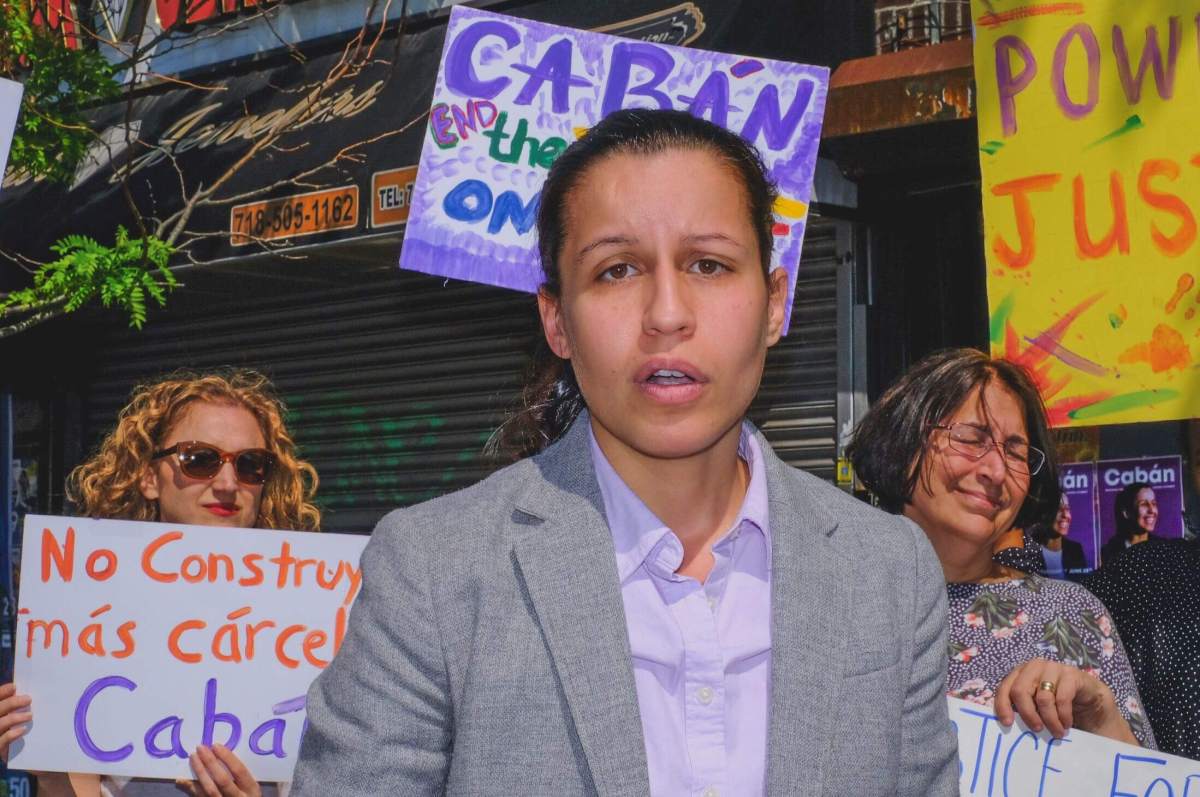Since March, the Working Families Party has backed Tiffany Cabán for Queens District Attorney and offered the resources for her to become a front-runner in the months leading up to the primary and well beyond.
But they may not have done enough to ensure her campaign survives to November if she does not come out ahead of Borough President Melinda Katz in the still-undecided Democratic primary — now in the midst of an automatic recount.
Contrary to the expectations of many with knowledge of the WFP’s history, Cabán will not appear on their ballot line in the general election, making the Board of Elections recount and court hearing a sudden death round in the most competitive Queens DA race in more than a generation.
According to a Working Families Party source, the organization was faced with a decision: either devote scarce resources to petitioning to add Cabán to the general election ballot, or commit those resources to a singular and aggressive Democratic primary run with no safety net.
Had the WFP given Cabán their party nomination, it would have guaranteed the progressive public defender a ballot spot in the November general election, regardless of the Democratic primary outcome — and potentially set up an even more contentious battle between Cabán and Katz, should the borough president wind up winning the primary.
Katz now holds a 16-vote lead over Cabán in the Democratic DA primary, for which an automatic manual recount started on July 9.
In all, the WFP provided $250,000 to Cabán’s campaign and devoted “thousands of hours of staff time,” according to a memo obtained by QNS.
“We knew this one was always going to be a David-and-Goliath struggle. But it’s part of the WFP’s mandate, in New York and nationwide, to transform our broken system of criminal justice and end mass incarceration,” the memo read. “Tiffany’s run is also the latest sign of how the community groups, labor unions, and grassroots activists who make up the WFP are changing the balance of power in our city and our state. We defeated the IDC, which led to a realignment in Albany that returned power to the people. We helped elect tenant organizer and criminal justice reformer Jumaane Williams as New York City Public Advocate. And with the Cabán campaign, we’re part of a movement that is transforming Queens.”
Politicians as well as parties such as the WFP have looked to alternate ballot lines as a fail-safe for tough races.
In 2018, for example, then-state Senator Tony Avella lost the Democratic primary to John Liu, but was on the Reform Party line in the general and continued to put up a fight for his northeast Queens seat (he was unsuccessful).
In the 2017 Democratic primary, then-Councilwoman Elizabeth Crowley defeated challenger Robert Holden in the general. Holden, however, pressed on with two third-party lines that he secured. He wound up defeating Crowley in November, thanks in large part to securing the Republican voting line in September of that year.
The use of fusion voting and using place holders are not unique tactics in New York where closed primaries can translate as untapped votes to hopefuls.
WFP on the campaign trail
The victory of Alexandria Ocasio-Cortez over 20-year incumbent Congresman Joe Crowley in June 2018 is still fresh in the minds of many, especially in consideration of the fact Crowley generated animosity by declining to vacate the WFP ballot line after losing the primary.
The WFP had already given Crowley their endorsement and party line leading up to the primary, but after the incumbent was toppled, the party decided it wanted to nominate Ocasio-Cortez to take their line instead. Crowley invited scorn from the far left when he claimed it was out of his hands to remove himself from the ballot.
“Lots [of] questions about WFP line. Was honored to have their support. I’m not running. For [the] record you can only be removed from the ballot if 1) you move out of NY; 2) die; 3) be convicted of a crime; 4) accept a nomination for another office (in a place I don’t live),” Crowley said in a statement posted to Twitter in July 2018. “I don’t plan on moving out of New York, have a clean record, hope God’s will is that I don’t die, and won’t commit what I honestly believe to be election fraud.”
Bill Lipton, state director of the Working Families Party, played on Crowley’s other residence in Virginia as a reason for why Crowley should have played by their rules.
“It is disappointing that Crowley has refused to vacate the Working Families Party ballot line,” Lipton told the Daily Beast at the time. “He chose not to show Ocasio-Cortez and the WFP respect by allowing us to put Ocasio-Cortez on our ballot line. WFP is giving all we have to electing Ocasio-Cortez and other progressive insurgents all across the nation. The only remaining way for Crowley to do the right thing is to switch his residency to Virginia, where his family resides and his children already go to school. It would fix the problem he created in an instant. Queens County Democrats practically wrote the book on election law, so it’s hard to imagine they don’t know that there are standard procedures to remove a candidate from the ballot that have been approved by the New York State Court of Appeals.”
Crowley was vocal in his support of Ocasio-Cortez after the primary, but was accused by the insurgent progressive of “mounting a third-party challenge” and blowing off concession calls.
Opposition to the IDC
The WFP has not been as willing to stick to its guns in its support of alternative candidates going back to the 2014 gubernatorial election, in which they chose to endorse Governor Andrew Cuomo over Zephyr Teachout.
That same year, they also dropped support of two primary challenges against the Independent Democratic Conference (IDC) after the rogue legislators agreed to dissolve, though the IDC later reneged.
February and May of 2017 saw the WFP involvement in multiple protests in front of then-state Senators Tony Avella and Jose Peralta for their defection to the IDC. Protestors in front of the office of Avella claimed in June of that year that they would welcome the IDC members back into the fold if they returned to the mainline of the party.
Although this feeling may not have been representative of the WFP at the time, that was the vocal sentiment of some within the anti-IDC movement.
But in February of 2018, the WPF declared all-out war on the IDC; a breakaway group of Democrats believed to have caucused with Republicans who had the majority to get bills passed.
When the IDC dissolved in April of that year, the WFP went forward with its support of progressive challengers to its members. John Liu prevailed over Avella and Jessica Ramos took down Peralta, who died later that year.
Ramos, the WFP choice, also claimed early on in her campaign that the initial reason for her challenge was because of Peralta’s defection. When the Senate Democrats reunited, Peralta expressed confusion about Ramos’ motive to run, but accepted the challenge by acknowledging that “it’s a democracy, and in a democracy, people can run.”
The WFP source also stressed that while the Ramos received their party line for the general, they also got involved earlier on in that election. They had more time to go through the process of getting her on the ballot.
The party also stressed the difference between committing resources to a district race versus a borough-wide race such as for District Attorney.





































